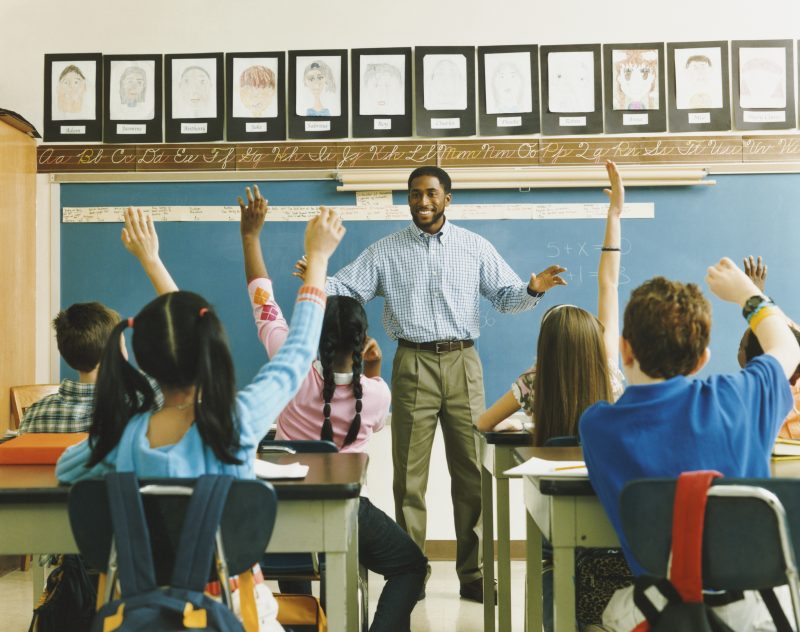
At Harvard Business School one of the most popular electives is a course called “Leadership and Happiness.” This course teaches graduate students seeking an M.B.A life skills such as emotional awareness, the importance of healthy relationships, and the importance of developing “grit” or resilience. This class has been so popular that despite doubling it’s enrollment from 72 to 144, the course still has a waiting list of students who want to take the class, but can’t because it is full. It has a long waiting list since its inception (Ellis 2022).
Recognize the Importance Of Emotional Intelligence
My first semester at graduate school for organizational behaviour was the first time I heard about emotional intelligence. Emotional intelligence (EI), can be described as the ability to perceive, manage and control emotions (Greenberg 2002). EI quickly became a predictor for success. EI consulting groups were formed to support CEOs and managers in developing EI in their employees. In competitive work environments, the most successful employees are those who are emotionally self-aware and can see how others feel (Greenberg 2002).
Social Emotional Learning is a Hit in the Classroom
Emotional intelligence is a key indicator of business success. Scholars have been able to find new ways to teach it over the years and started teaching it to younger students to build resilience, problem-solving skills and improve relationships. These skills are now known as social emotional learning (SEL), programs for K-12 schools. Durlak (2011) and his colleagues (2011) did a meta-analysis of schools that had implemented SEL programs. They found that schools with a higher average score on standardized tests had an average 11 percentile point increase. These schools saw an increase in test scores, but they also saw an increase in student achievement. Improvement in standardized test scoresThese were implemented after implementing SEL programmes. Schools also reported a decrease in bullying, depression, and conduct problems.
Taylor and colleagues (2017) conducted a meta-analysis on social emotional learning interventions in schools and how these interventions impacted youths’ subsequent development. After reviewing hundreds upon hundreds of studies involving more than half of a million students who received social emotion learning in schools, the researchers discovered that students who learned SEL skills in schools had improved their overall development over a 1-3 year period. Higher academic performance, positive attitudes, prosocial behaviours, and better overall well-being. The results indicate that these SEL skills were associated with significant improvement in students’ long-term adjustment.
Our Children’s Post-Pandemic Mental Health Epidemic
Since the onset of the pandemic, the need to address children’s mental health has become increasingly important. Anxiety can be a problem in our youth as early as 7-years old (Anderer 2019, 2019). Suicide is the second leading cause for death among teens in this country. According to the Centers for Disease Control (Smith-Schoenwalder 2002), suicide rates have increased 50% among teenager girls between 12 and 17 years old in 2020, compared with the 2019 suicide rate. One possible explanation for this increase in suicide amongst teenagers is the use of smartphones and increased social isolation (Twenge & Campbell, 2018). Pipher & Gilliam (2019), young adults often rely on their parents for help with their problems.
How can Social Emotional Learning help our kids to develop skills that will be useful for them as adults? SEL uses strengths-based approaches to promote positive development by improving children’s’ self-control, interpersonal skills and problem-solving skills. Specifically, SEL increases the importance of behavioral competencies in school and everyday life (Taylor et.al., 2017). These competencies are included in the following list.
- Self-Awareness: Recognizing emotions, strengths, limitations, and personal values.
- Self-Management: How to regulate emotions and behaviors
- Social Awareness: Empathizing with others, and other perspectives taking
- Relationship skills: How to build and maintain healthy relationships
- Responsible Decision Making: Making smart choices in different situations.
Our children will need to learn new tools and strategies to navigate the world of new technologies, global crises and civil unrest. Research shows that social emotional learning interventions in schools do exactly that. The skills learned in school interventions can be carried on into adulthood.
The GoodTherapy Registry may be of assistance to you. There are thousands of therapists on our site who would love to be there for you. Find the support you need for your family today.
Sources:
Anderer, J. (2019, November 5). Majority of children regularly battling anxiety: ‘Possibly most stressed generation ever.’ Retrieved from https://www.studyfinds.org/majority-children-regularly-battling-anxiety-most-stressed-generation
Ellis, L. (2022. February 14). Looking for happiness? Harvard offers some tips. Retrieved from: https://www.wsj.com/articles/harvard-wants-m-b-a-s-to-learn-how-to-be-happy-at-work-11644836400
Greenberg, J. (2002) Management of behavior in organizations. Upper Saddle River (NJ): Prentice Hall.
Pipher, M. & Gilliam, S. P. (2019, August 15). The lonely burden of today’s teenage girls. Retrieved from https://www.wsj.com/articles/the-lonely-burden-of-todays-teenage-girls-11565883328
Smith-Schoenwalder, C. (2021, June 11). CDC study shows an increase in suicide attempts by adolescents during pandemic. Retrieved from: https://www.usnews.com/news/health-news/articles/2021-06-11/cdc-study-documents-rise-in-adolescent-suicide-attempts-during-pandemic
Taylor, R. D., Oberle, E., Durlak, J. A., & Weissberg, R. P. (2017). Promoting positive youth growth through school-based social- and emotional learning interventions: A meta analysis of follow-up effects. Child Development, No. 88(4), 1156-1171.
Twenge, J. M., & Campbell, W. K. (2018). Evidence from a population-based study: Associations between screen-time and lower psychological well being among children and teens Preventive Medicine Reports, 12, 271-283.
© Copyright 2022 GoodTherapy.org. All rights reserved.
The author of the article mentioned above wrote it. GoodTherapy.org is not responsible for the opinions and views expressed. Questions or concerns regarding the articles can be directed at the author or left as comments below.

